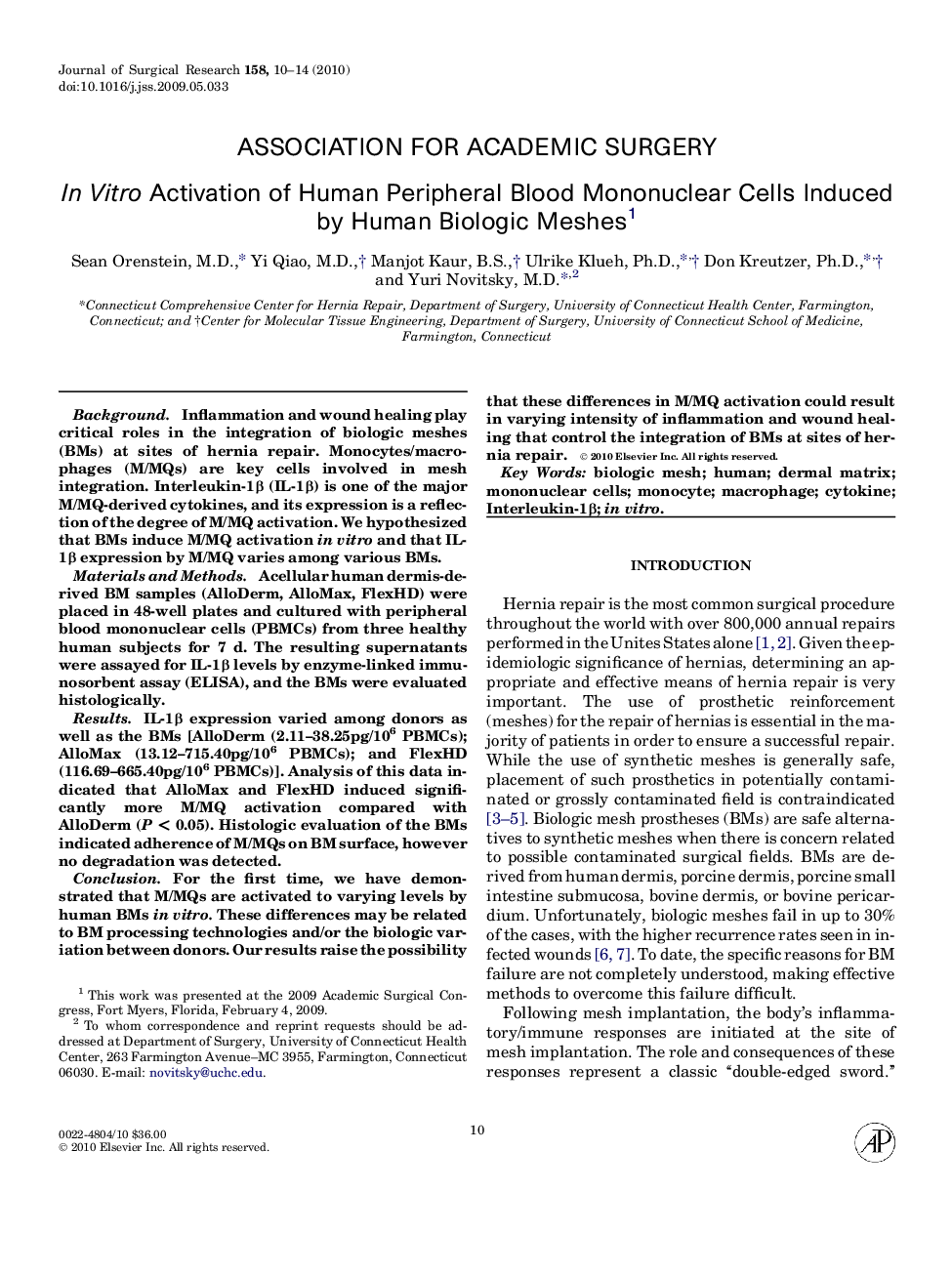| Article ID | Journal | Published Year | Pages | File Type |
|---|---|---|---|---|
| 4303318 | Journal of Surgical Research | 2010 | 5 Pages |
BackgroundInflammation and wound healing play critical roles in the integration of biologic meshes (BMs) at sites of hernia repair. Monocytes/macrophages (M/MQs) are key cells involved in mesh integration. Interleukin-1β (IL-1β) is one of the major M/MQ-derived cytokines, and its expression is a reflection of the degree of M/MQ activation. We hypothesized that BMs induce M/MQ activation in vitro and that IL-1β expression by M/MQ varies among various BMs.Materials and MethodsAcellular human dermis-derived BM samples (AlloDerm, AlloMax, FlexHD) were placed in 48-well plates and cultured with peripheral blood mononuclear cells (PBMCs) from three healthy human subjects for 7 d. The resulting supernatants were assayed for IL-1β levels by enzyme-linked immunosorbent assay (ELISA), and the BMs were evaluated histologically.ResultsIL-1β expression varied among donors as well as the BMs [AlloDerm (2.11–38.25pg/106 PBMCs); AlloMax (13.12–715.40pg/106 PBMCs); and FlexHD (116.69–665.40pg/106 PBMCs)]. Analysis of this data indicated that AlloMax and FlexHD induced significantly more M/MQ activation compared with AlloDerm (P < 0.05). Histologic evaluation of the BMs indicated adherence of M/MQs on BM surface, however no degradation was detected.ConclusionFor the first time, we have demonstrated that M/MQs are activated to varying levels by human BMs in vitro. These differences may be related to BM processing technologies and/or the biologic variation between donors. Our results raise the possibility that these differences in M/MQ activation could result in varying intensity of inflammation and wound healing that control the integration of BMs at sites of hernia repair.
